2016 Environmental Forum for International University Students
If University Campus is Green, the Future of Humanity will be Sustainable.
Hosted by : Daejayon, KNA Environmental Forum, KGCAUS(Korea Green Campus Association of University Students)
Sponsored by : Korean Ministry of Government Administration and Home Affairs, Korean Ministry of Environment, Indonesian Ministry of Environment, Northeast Asia Office of UNESCAP, Gabon Embassy, Korean Committee for IUCN, GREENERS of Indonesia
The passion of global university students, who change the world quietly, gathered on 23th of November 2016. 2016 Environmental Forum for International University Students was held with 3 sessions; Eco League of International University Students, Green Campus, and Green City.
200 university students, environment experts, officials of the governments, and international organizations gathered together to discuss about roles of university student leaders who will lead present, future global environment, Green Campus for achieving UN SDGs, and to seek various ways for sustainable future of mankind.
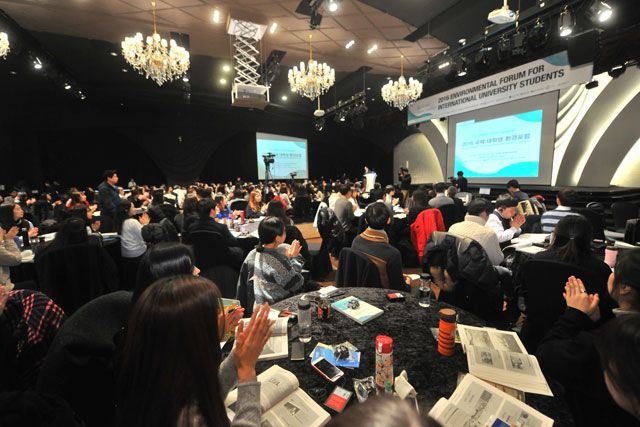
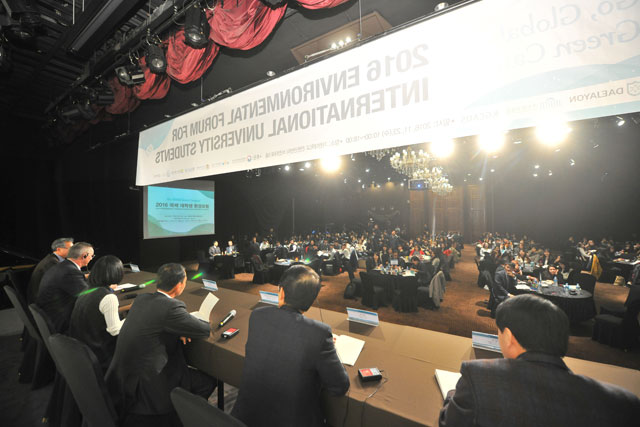
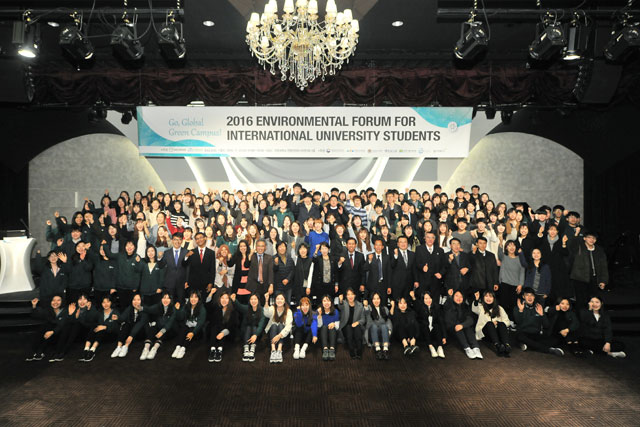
Opening Session
The forum started with opening speech by Lee Hye-gyeong, President of Daejayon, followed by congratulatory messages of Nam Kyung-pil, Governor of Gyeonggi Province, Guadalupe Palomeque , Bolivian ambassador, and Ilyas Asaad, senior advisor for Indonesian Ministry of Environment and Forestry. Especially, keynote speech ‘Young Adults and Sustainable Development Goals of UN’ by Kilaparti Ramakrishna, representative of Northeast Asia Office of UNESCAP, enlightened the audience that university students are the leaders not only of future but also of present.
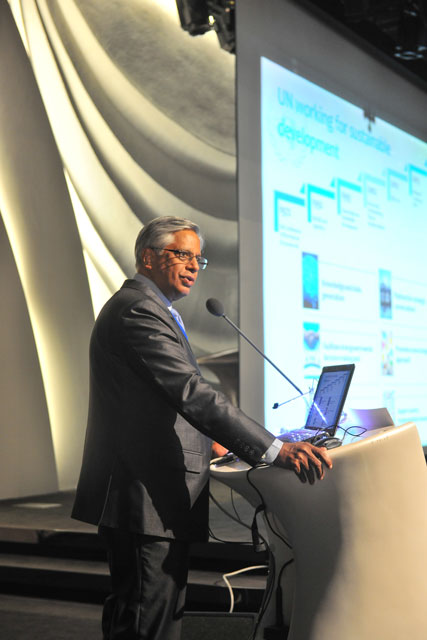
Session 1. Eco League of International University StudentsGo, Global Green Campus!
FECAM of Nepal Kathmandu University, PLH BEM KM IPB of Indonesia Bogor Agricultural University, Nature+ of Shingu University, and Tea Tree of Kookmin Univeristy went through the final competition, after passing the preliminaries with 52 campus clubs of 10 countries.
* Best Club: FECAM, Nepal Kathmandu University
FECAM won the Korean Environment Minister Prize and was selected as the best club for conducting activities and campaigns for climate change and environmental recognition improvement that people of any age are able to participate.
Main activities: conducting environmental cleanup around the campus, publicity activities of using cotton/hemp cloth bags, installing trash cans in campus, holding environmental seminar/debate, work shop for waste management, holding environmental art contest/photo exhibition/cultural performance, forest conservation (1 person 1 tree campaign), cycling race and hiking for publicizing use of bicycle, education for teenagers and children about climate change response plan, etc.
Session 2. Green Campus
2030 Agenda(UN SDGs) is not a donation, but a win-win formula. _ Jan Ole Grevstad, a Norwegian Ambassador to Korea
Jan Ole Grevstad, Norwegian Ambassador to Korea, delivered a speech about the effort of the Norwegian government and roles of the university students to fulfill SDGs. He enlightened that there are many things that university students who have potential and propulsive can do for UN SDGs that exist for profits of all nations. Ambassador Grevstad said that university students, being as members of society and potential decision makers, should let the government and the leaders know that they are interested in their promise for sustainable future and ask them to fulfill the goals with responsibility. Also, he added that sharing the SDGs with many people including friends and family is very important.
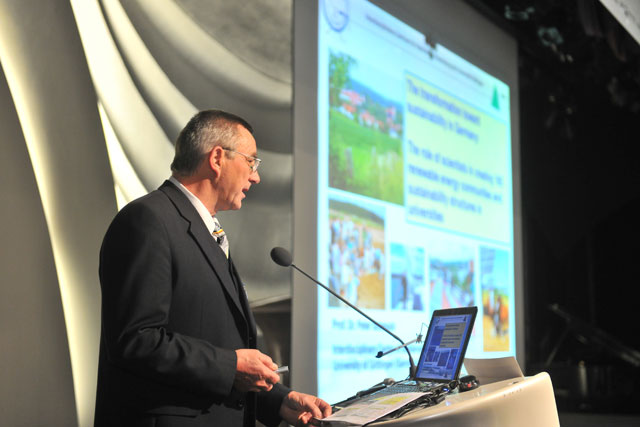
Do we have enough renewables? YES! Peter Schmuck, professor of Germany Göttingen University
Peter Schmuck, professor of Göttingen University in Germany, shared sustainable changes of German universities including 185 bioenergy villages starting from Juehnde. He delivered a speech with theme “Change of Germany for Sustainability”, highlighting that mankind has already much more renewable energy than we need.
He also introduced the trials and endeavors of other villages besides 185 villages to utilize solar energy. Professor Schmuck emphasized that sustainability is not based on materialism or infinite growth, but on human respect and efficiency.
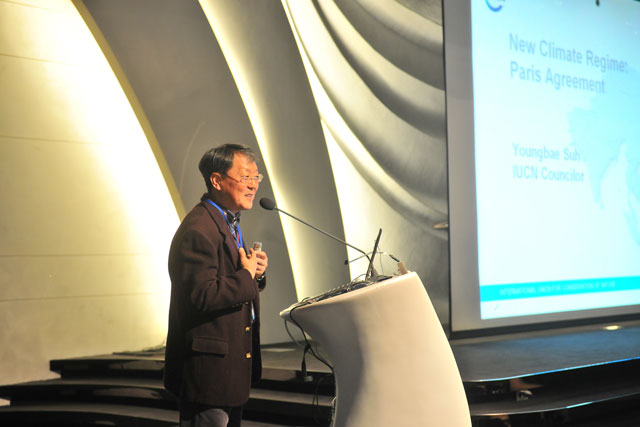
New Climate Regime and Paris Agreement _ Young-bae Seo, director of IUCN, professor of Seoul National University
Professor Suh explained about Paris Agreement which is for mitigating climate change caused by mankind, mentioning 5th report of IPCC about climate change presented in 2014, which shows that greenhouse gas emission is proportional to elevation of earth temperature. He pointed out that someone’s overspending has to do with the matter of survival of opposite side of the earth, explaining climate change specifically with its evidence.
Session 3. Green City
Meeting of Nepal Kathmandu toward Green City and Seoul Seong-dae-gol Energy Self-supporting Village
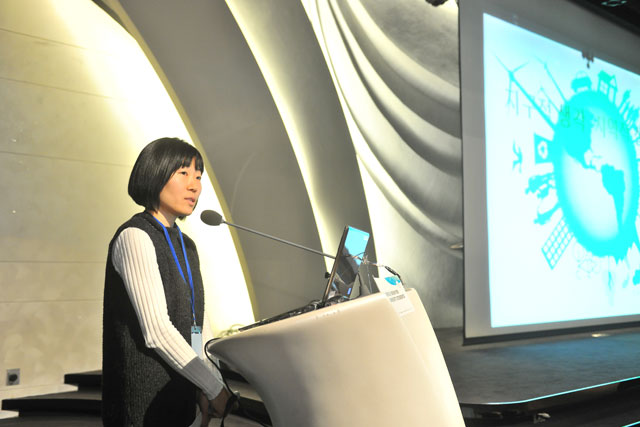
Rabindra Kumar Rai, director of Ministry of Environment in Kathmandu city office, defined sustainable green city as a local community that all members make efforts together to balance ecological, economic, social demand in order to offer clean, healthy and safe environment to all members and future generation. He also introduced policies of Kathmandu to make Green City, such as environmental cleanup, usage of renewable energy, rainwater collecting and utilizing.
Cha Eun-ju, team leader of Seongdaegol energy self-supporting village, shared an example of managing village library, village school and energy supermarket. She also introduced activities of ‘laboratory of play without electricity’ and ‘laboratory of changing Seongdaegol town’ which are to make energy converting culture.
She talked about the endeavor of the village to make an educational ecosystem where village ecosystem, social/economic ecosystem and energy education go together.
Kathmandu city and Seongdaegol energy transition town, working hard for sustainable future, deeply agreed on cooperation with young students and future generation and importance of their roles.


 5
5


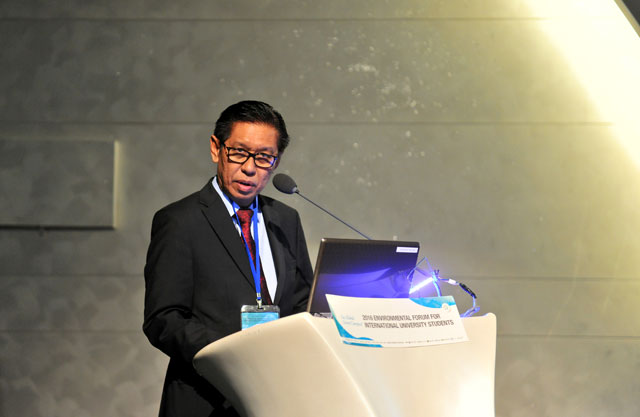

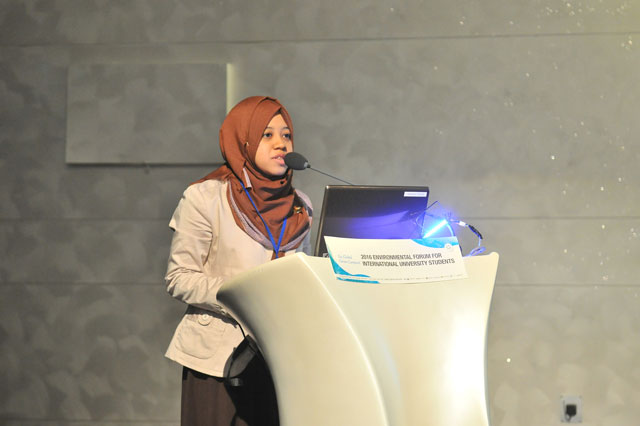
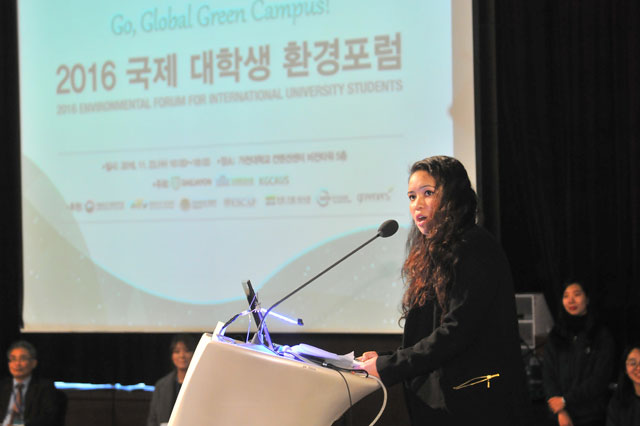
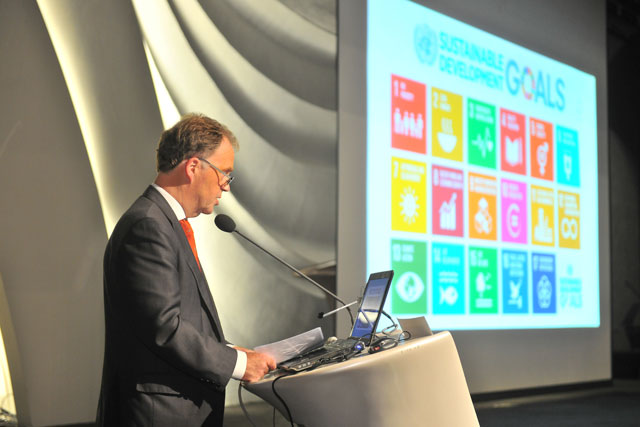


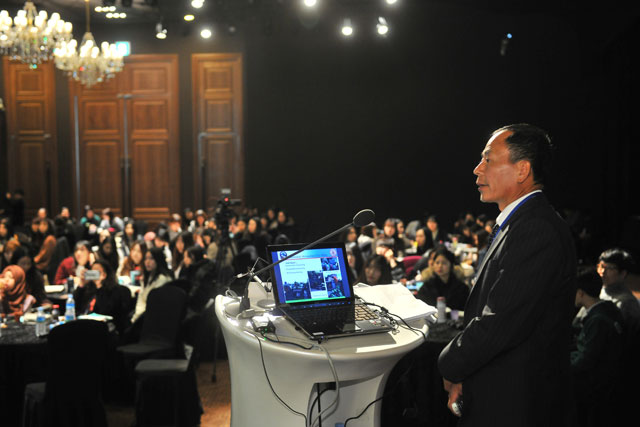

 1
1 5
5